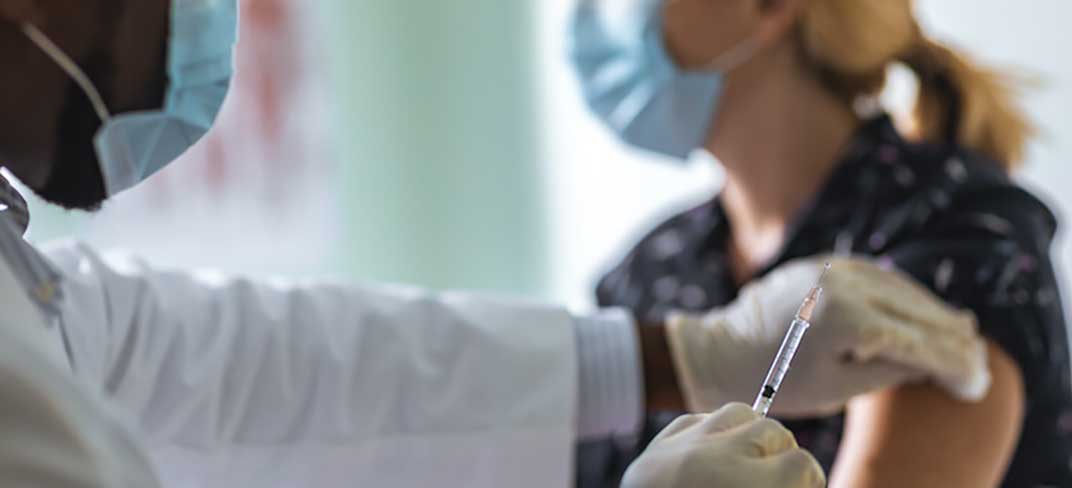Why Getting the Flu Shot is More Important Than Ever

Updated on 12 November 2024
This article has been adapted from our United States affiliate, UPMC HealthBeat. Read the original article.
With the world’s attention focused on COVID-19, it’s easy to forget about another foe headed our way this winter: the flu.
The influenza virus is not as deadly as COVID-19, but it still kills thousands of Americans every year. Fortunately, an effective flu vaccine exists that reduces your likelihood of catching the flu this season.
“The recommendation is everyone six months of age and above get a yearly flu vaccine,” says Marian Michaels, MD, of the Division of Pediatric Infectious Diseases at UPMC Children’s Hospital of Pittsburgh.
Does the Flu Shot Prevent COVID-19?
The influenza virus is very different from the coronavirus that causes COVID-19, so a flu shot can’t prevent COVID-19.
But the current pandemic does mean getting a flu shot is more important than ever: it reduces your risk of having to fight two infections at once if you do get COVID-19.
The flu shot also lowers your chances of ending up in the hospital with influenza.
“I think it is really important to be safe and do as much as we can to protect our children, ourselves, and our loved ones,” Dr. Michaels says. “Taking this seriously and getting our flu vaccines, as well as all the other immunizations that are available to protect our children from diseases that too often have killed people in the past, is really the most important thing we can do to help our families be safe.”
Types of Flu Shots for 2020
All flu vaccines work in the same way: they introduce your body to pieces of the flu virus so that your immune system recognizes it as an intruder. Although those pieces can’t make you sick, your immune system creates proteins called antibodies to fight them.
Those antibodies stick around after responding to the vaccine. If you do encounter the real flu, the antibodies attack the influenza virus before it has to chance to make you sick.
All flu shots offer protection against three or four different flu strains. These vary from year to year, depending on which strains experts believe will be most common during the upcoming flu season.
How Effective Is the Flu Vaccine?
The flu vaccine reduces your chances of catching the flu, but how much it lowers your risk varies each year. That’s because the flu virus itself is constantly changing, and scientists must try to keep pace by updating the vaccine.
Some years, the strains in the flu shot match the strains circulating in the community very well, so the vaccine is especially effective. Other years, the virus changes quickly or other strains pop up, so the vaccine is less effective.
Most years, the flu vaccine is 40% to 60% effective. In other words, it cuts your risk of catching the flu roughly in half.
Even in years when the flu shot doesn’t work as well, it still prevents thousands of hospitalizations and deaths. If you get the flu shot but catch the flu anyway, you’re less likely to develop complications or need hospitalization.
What’s Different About Flu Vaccines in 2020?
The strains in this season’s flu shot are not the same as the ones used last year. Scientists have updated the strains to those that public health experts expect will spread through the community this year. That means it’s important to get a flu shot this year, even if you got it last year.
Side Effects of the Flu Shot
The flu shot cannot give you the flu and does not increase your risk of catching COVID-19. But you might experience side effects from the flu shot or nasal vaccine. Most are mild and last only a few hours or several days:
- Soreness, redness, or swelling where you got the shot
- Headache
- Fever
- Muscle aches
- Feeling sick to your stomach
- Tiredness
Tell your doctor if you feel dizzy for more than an hour after getting the vaccine. If you have trouble breathing or notice signs of an allergic reaction, contact your doctor immediately. However, serious reactions are rare.